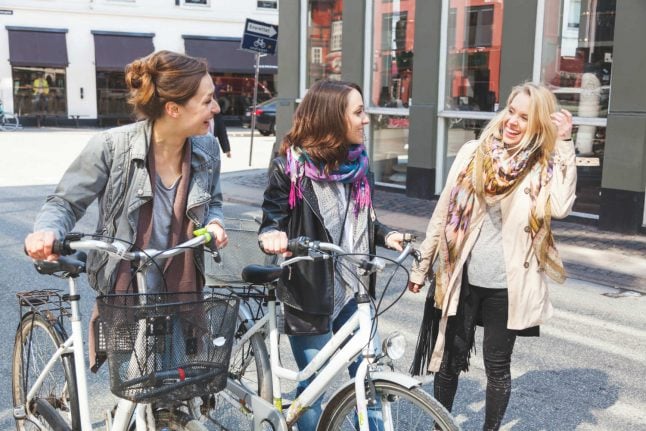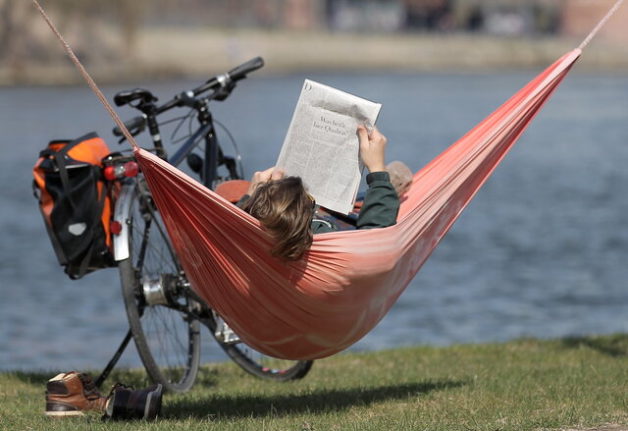The circles you move in make this inevitable — language school, your kids’ schools and clubs, international workplaces, the list goes on.
And I think that it is important to recognise that this is OK. Making friends with Danes is a long game and worthwhile but one of the biggest fears that people, especially women, have when relocating to a new country is how they will find and make friends.
Importance of active connection
It may seem obvious but unless you are putting yourself in places where you will meet people and being outgoing and friendly to people you do meet you won’t find making friends easy. People won’t be seeking you out so you need to put in the leg work initially. Language school is one of the best places to meet new people if you are not working in an office environment. Secondly, look at your (and your family’s) hobbies and interests and join groups related to these — it may even be virtual groups at the start.
Not all expats are the same
In the main many expats you meet will be living in the country for a shorter and specific period of time. If they are expats who move around a lot they will be used to making friends quickly with others as time is of the essence. You may find that your new expat friends will share personal details about their lives much quicker than you are used to and you may become fast friends. It is important to remember that this group of friends will be very transitional and situational and you will get used to saying good bye a lot. Depending on how long you plan to stay in the country depends how much the nature of this kind of friendship affects you as you will may be the one to be leaving after a few years.
Then there are seasoned expats, those who are not actually expats in the traditional sense but people who have left their own country to settle on a permanent or long term semi permanent basis. These people will often already have strong groups of friends but will be open to newcomers as they recall what it was like for them. They will take things a little slower but are great people to add to your circle as they will have longer term knowledge to share, are less likely to be heading off to a new place any time soon and therefore take things a little slower. They may also be a bit more integrated into Danish life.
Same nationality doesn’t mean automatic friends
One thing I have noticed is that you will often see people together who would never have been friends in their home countries. There could be a positive reason for this and that is when you move somewhere new you lose some of your previous reservations and judgements about others and take them more of face values and common interests.
But I think in some cases people gravitate to others from their own country as almost a life raft. They speak your language and they understand your cultural references but it is important to take care with making friends with anyone just to have friends. That said there is certainly something comforting about being about to speak your own language and know you will be understood.
READ ALSO: Ten surprising things that happened to me after moving to Denmark
A two way street
There needs to be a strong element of reciprocity in friendship and even more so when you are the newcomer. Make sure you are not always taking and asking for favours with nothing in return.
Having kids helps
Having children is a massive help in connecting with people and making friends. You can take your child to a music group and meet people, you can strike up conversations with interesting looking fellow mums using the children as a starting point. There are tons more places geared up to getting children together than adults and you can cash in on this. And if the worse comes to the worse at least your child will speak to you if no one else does!
Be genuine
It is very easy to find yourself falling into a mould to try and fit in with a new circle of friends but stay true to yourself and be genuine. This will help you make more real and true friends. I am generally quite outgoing and friendly but I do have a quiet side which I don’t hide. It is important that people have the chance to meet the real you.
Of course moving to a new country does give you the chance to perhaps reinvent yourself a little. We can also find ourselves outwardly becoming a certain way or show a certain personality to others, when our true personality gets hidden within. Perhaps you have always been creative and this has been stifled a little — now is the time to let that side out and give her a chance to flourish.
Melanie Haynes is originally from the UK and has lived in Copenhagen for nine years. She writes about life in Copenhagen on her blog Dejlige Days and after experiencing relocation to Copenhagen and Berlin, she runs a settling-in service aimed at expats called Dejlige Days Welcome and works with Copenhagen Housing to offer an integrated settling-in and home search service. Her book ‘My Guide to a Successful Relocation’, is available here.



 Please whitelist us to continue reading.
Please whitelist us to continue reading.